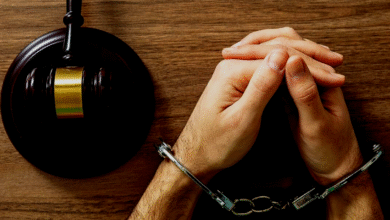Criminal Law and Justice: A Comprehensive Overview

Criminal law and justice are fundamental components of any society, serving as the bedrock for maintaining order, protecting individual rights, and ensuring a fair and just legal system. In this comprehensive overview, we will delve into the intricate world of criminal law, from its historical origins to the contemporary nuances that shape the modern justice system. By the end of this article, you’ll have a clear understanding of the principles, processes, and challenges within the realm of criminal law.
Historical Roots of Criminal Law
To comprehend the present, we must first explore the past. The historical roots of criminal law date back to ancient civilizations, such as Mesopotamia and Greece, where codes of conduct and punishment were established.
Classification of Crimes
Criminal law categorizes offenses into various classes, including felonies, misdemeanors, and infractions. Understanding these distinctions is crucial for anyone navigating the justice system.
Elements of a Crime
To convict an individual of a crime, prosecutors must prove the presence of specific elements. We’ll break down what constitutes a criminal offense, including the actus reus and mens rea.
Criminal Procedure: From Arrest to Sentencing
The criminal justice system involves a series of well-defined steps, starting from arrest and culminating in sentencing. We’ll walk you through the entire process, from the initial investigation to the courtroom trial.
Read More: The Criminal Justice System: A Guide to Criminal Procedure
Key Legal Principles
Several key legal principles underpin criminal law, including the presumption of innocence, burden of proof, and double jeopardy. These principles play a pivotal role in ensuring a fair trial for every defendant.
Constitutional Safeguards
The United States Constitution provides essential safeguards to protect the rights of the accused. We’ll examine the Fourth, Fifth, Sixth, and Eighth Amendments and how they impact criminal proceedings.
Legal Defenses
Defendants in criminal cases have the right to present defenses against the charges they face. Learn about various legal defenses, such as self-defense, insanity, and alibi.
Punishment and Sentencing
The justice system employs a range of punishments and sentences for convicted individuals. We’ll discuss the different forms of punishment, including imprisonment, probation, and fines, and the factors that influence sentencing decisions.
Criminal Justice Agencies
Numerous agencies, including law enforcement, prosecution, and defense, work together to maintain the criminal justice system. Explore the roles and responsibilities of these entities.
Controversies in Criminal Law
The field of criminal law is not without its controversies. We’ll address critical issues such as racial disparities in sentencing, mandatory minimum sentences, and the use of the death penalty.
Emerging Trends in Criminal Law
Criminal law is a dynamic field, constantly evolving to adapt to societal changes. Discover the emerging trends, such as cybercrime and the legalization of recreational drugs, that are reshaping the landscape of criminal justice.
International Criminal Law
Beyond national borders, international criminal law deals with crimes of global concern. Learn about international tribunals and their role in prosecuting individuals for war crimes, genocide, and crimes against humanity.
Read More: Exploring Criminal Liability: Criminal Law Fundamentals
Conclusion
Criminal law and justice are integral components of our society, ensuring that individuals are held accountable for their actions while upholding their rights. This comprehensive overview has shed light on the historical roots, legal principles, and contemporary challenges in the field of criminal law.
FAQs
What is the difference between a felony and a misdemeanor in criminal law?
Felonies are more serious crimes and are typically punishable by imprisonment for over a year, while misdemeanors result in less severe penalties, such as shorter jail time.
How does the presumption of innocence work in criminal trials?
The presumption of innocence means that the accused is considered innocent until proven guilty. It places the burden of proof on the prosecution to establish guilt beyond a reasonable doubt.
What are the major controversies surrounding the death penalty in the United States?
The death penalty is a divisive issue, with concerns about racial disparities, wrongful convictions, and ethical considerations being at the forefront of the debate.
How has the digital age impacted criminal law and justice?
The digital age has given rise to new forms of crime, such as cybercrime and online fraud, presenting unique challenges to law enforcement and the legal system.
What is the role of international criminal tribunals in prosecuting individuals for war crimes and genocide?
International criminal tribunals are established to prosecute individuals responsible for heinous international crimes that transcend national boundaries, ensuring accountability on a global scale.












2 Comments